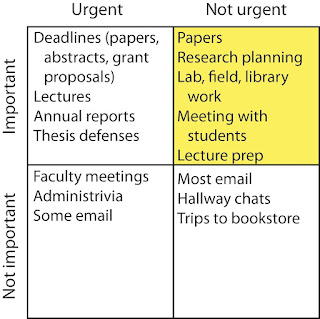Reviewing #10--Shingling
You've all heard about shingling and what it is. As a reviewer, you can be very helpful to the editor by pointing out that a paper is a shingle. Keep in mind that, even in specialty journals, the editors may come from a wide variety of backgrounds and may not be familiar with all aspects of the literature. At high-load journals, it may be very difficult if not impossible for the editors to do the legwork--which can take a couple of hours or more per paper--to figure out if a paper is a shingle, so they really are dependent on the reviewers. Before I start, though, let me define shingling for those of you who might not be that familiar with the concept. Shingling is publishing basically the same paper as one you've published before, but with some new data added, resulting in, at best, a mere expansion of already-reached conclusions. Not all papers that have new data added to old data are shingles. I have seen many papers that add new data to previous work, but the new d
